HALLOWELL — A majority of people who testified in the early hours of a final public hearing Wednesday night before the Maine Public Utilities Commission spoke against a proposed 145-mile transmission line from Quebec to Massachusetts, citing the effect on the environment and tourism in northwest Maine.
“Stay away from our wilderness,” said Sheryl Harth, a retired nurse from the Jackman area. “We have some of the most remote areas east of the Mississippi, and we want to preserve it for future generations.”
About 100 people crowded into a conference room at the PUC at 5 p.m., while others watched the hours of testimony from an overflow room. By 8 p.m. almost half of the 73 people who had signed up to speak had delivered their message to the commission, which is considering approval of the New England Clean Energy Connect project being proposed by Central Maine Power.
STRONG SENTIMENTS BOTH WAYS
A smaller number of proponents spoke Wednesday night, touting the jobs the project would bring during construction and a boost to tax revenue CMP has estimated at $18 million annually. Opponents, meanwhile, spoke about the disruption the project would bring to the environment and tourism.
Auburn Mayor Jason Levesque was among those who spoke in favor of the project, citing the tax revenue it will bring to next-door Lewiston.
“The impact to our city is negligible, but it is significant what it will do for the western Maine economy, including our sister city of Lewiston,” said Levesque, adding the Auburn City Council approved a resolution in support of the project, 6-1. “We recognize the city of Lewiston is in desperate need of the valuation this project will bring, so yes, I am in favor of it, as is a majority of the City Council and the residents of Auburn.”
Other proponents of the project Wednesday also talked about the 3,500 estimated jobs the project will bring during construction.

Auburn Mayor Jason Levesque testifies Wednesday about the CMP corridor project at the Maine Public Utilities Commission in Hallowell.
“Some people may consider these jobs temporary, but they’re also essential to Maine’s economy,” said Adam Mancini, director of the utility division for E.S. Boulos Co., an electrical contractor in Westbrook.
Project opponents testified Wednesday that it would have devastating effects on the environment, wildlife and tourism in northwestern Maine.
“This will ruin our way of life,” said Tania Merette, who lives in Long Pond Township and sells real estate in the area. “I can tell you why people come and purchase land there. It’s the pristine nature, the wildlife and the night sky. It’s because of the view on Route 201, a national scenic byway. This will impact us.”
Merette said she is also a member of the Maine Snowmobile Association but plans to rescind her membership after a letter was read from Bob Myers, executive director of the MSA, on Wednesday night, supporting the project.
Myers, in an interview, said the MSA voted Tuesday to support the project, in part because the entire CMP corridor would be open for snowmobile use.
 “In a broader picture, we deal with thousands of landowners, and CMP is a landowner that’s been doing things the right way,” Myers said. “This is going to bring some terrific things to the area, and this is a way for us to thank them for being a good partner over the years.”
“In a broader picture, we deal with thousands of landowners, and CMP is a landowner that’s been doing things the right way,” Myers said. “This is going to bring some terrific things to the area, and this is a way for us to thank them for being a good partner over the years.”
DOUBTS ABOUT CLIMATE BENEFITS
The hearing came hours after a report commissioned by the Natural Resources Council of Maine, the Sierra Club and the Maine Renewable Energy Association was released, stating the project would not reduce carbon pollution and would do nothing to offset climate change.
“Climate change is something we should all be concerned about,” said Monica McCarty, of Rome, who called on the PUC to conduct an independent review of the effect of clearcutting associated with the project on carbon emissions and whether that impact would be offset by the project’s benefits.
“In order to do this project, we have to clearcut 2,200 acres of Maine forest that right now is mitigating the amount of carbon in the atmosphere,” McCarty said. “It does not make sense.”
The NECEC project, commissioned by the Massachusetts Department of Public Utilities, would include 51 miles of new corridor from Beattie Township in Franklin County to The Forks in Somerset County, and another 94 miles of new transmission line in an existing CMP corridor leading to Lewiston.
In addition to PUC approval, the project also needs other state and municipal permits as well as approval from the U.S. Department of Energy, U.S. Army Corps of Engineers and the Federal Aviation Administration, before construction can begin.
CMP has estimated the permitting process would be complete by 2019 and, if approved, construction would be complete by 2022.
Rachel Ohm — 612-2368
Twitter: @rachel_ohm
Send questions/comments to the editors.


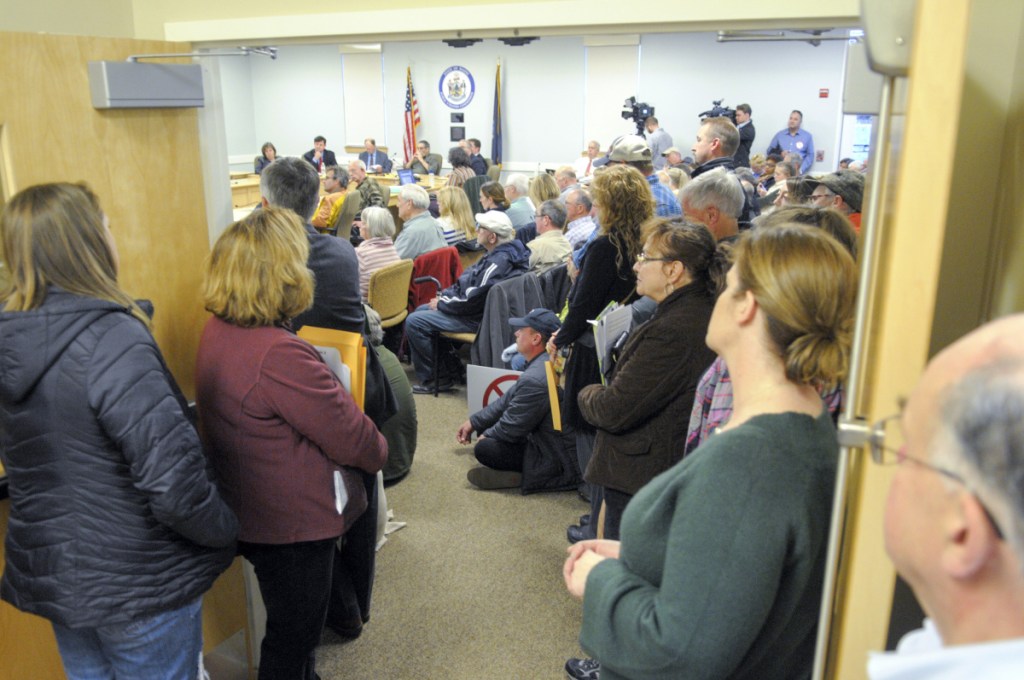
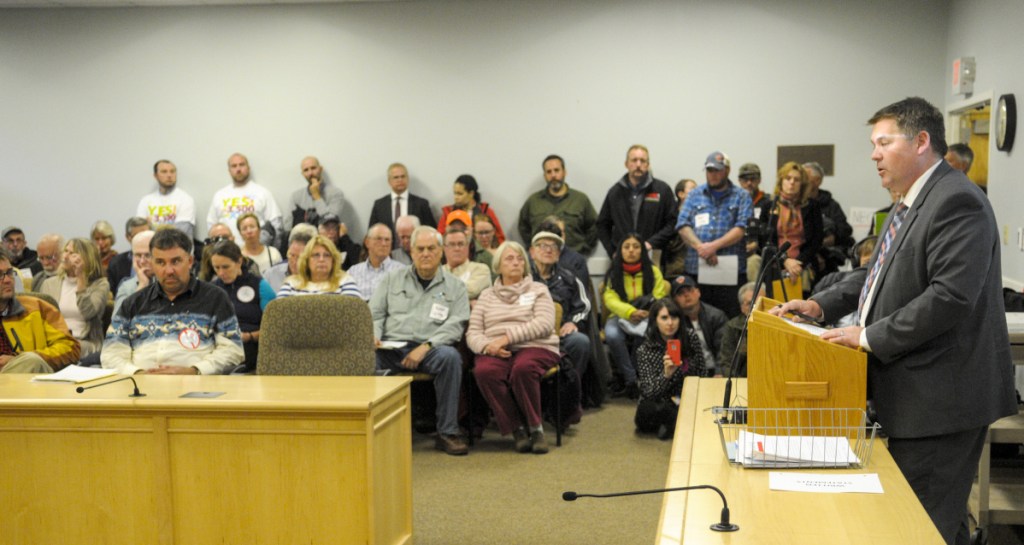
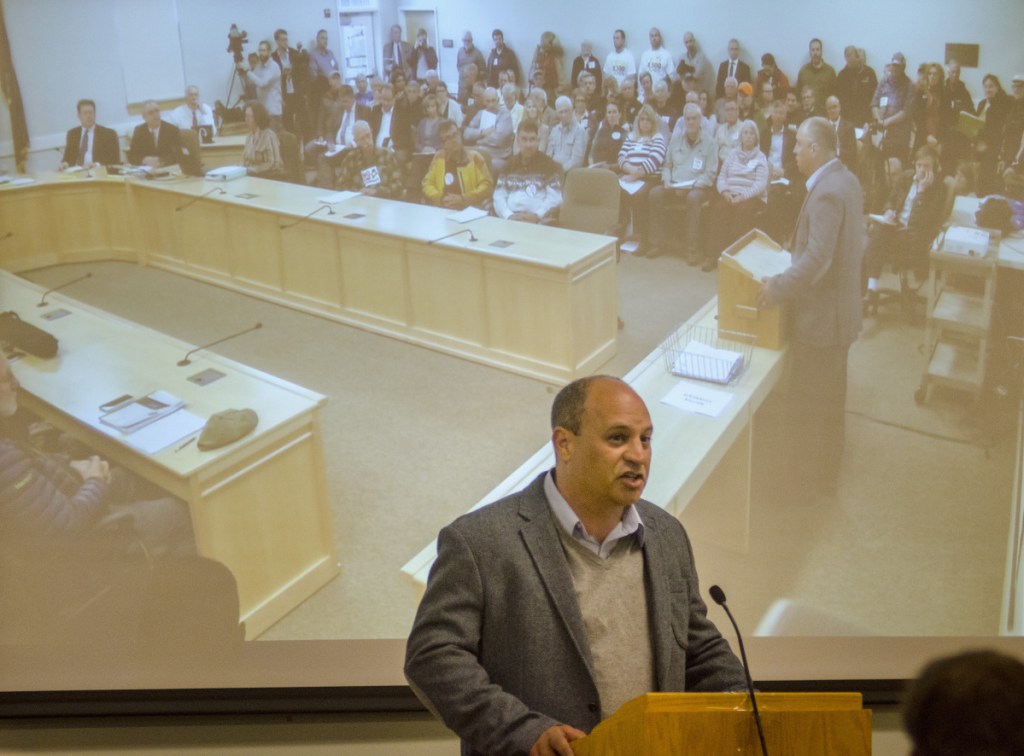
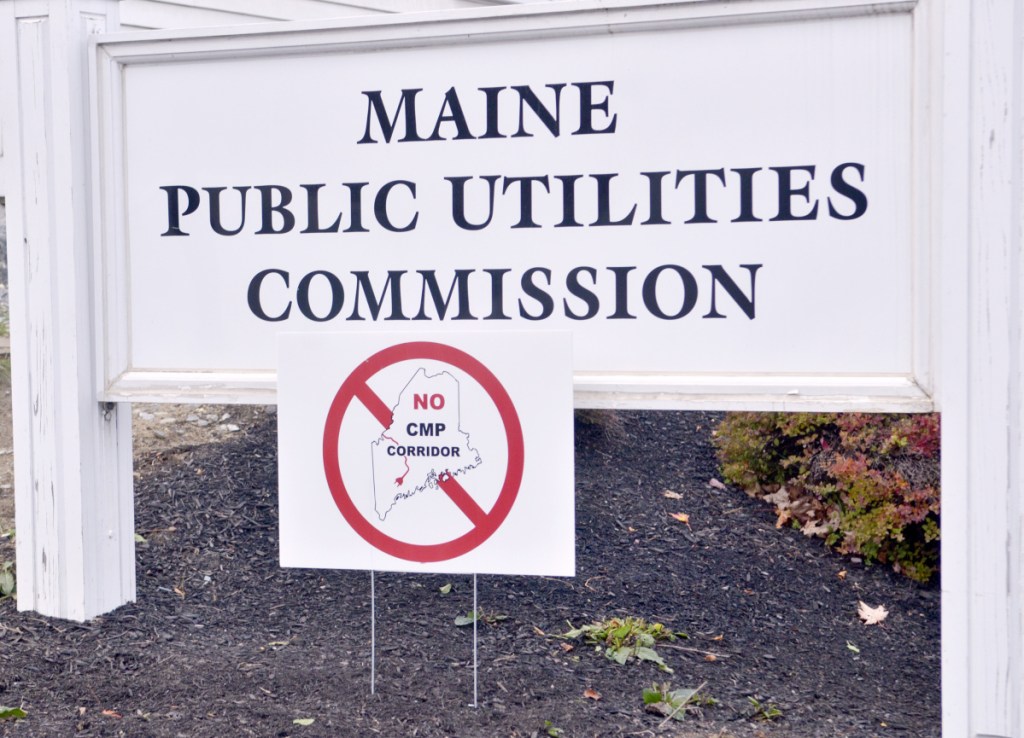
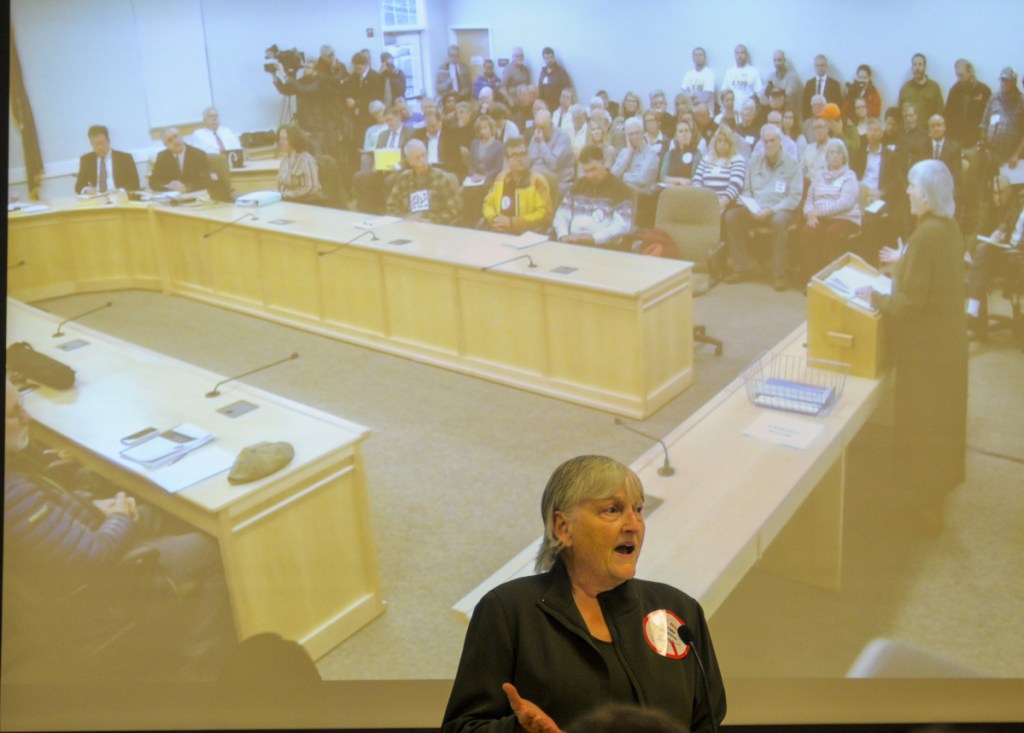
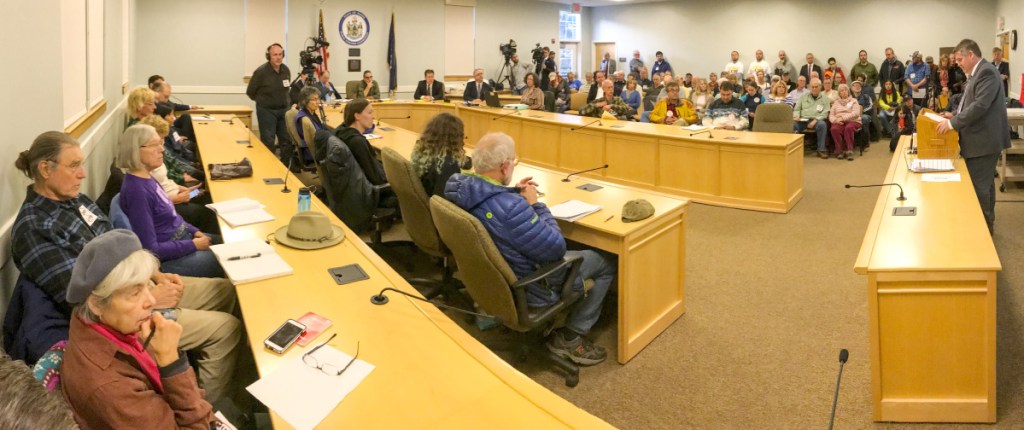
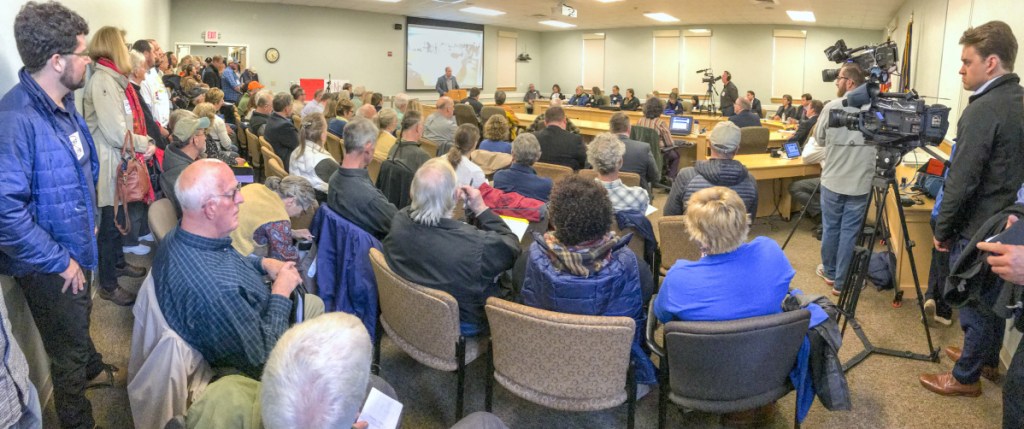

Comments are no longer available on this story